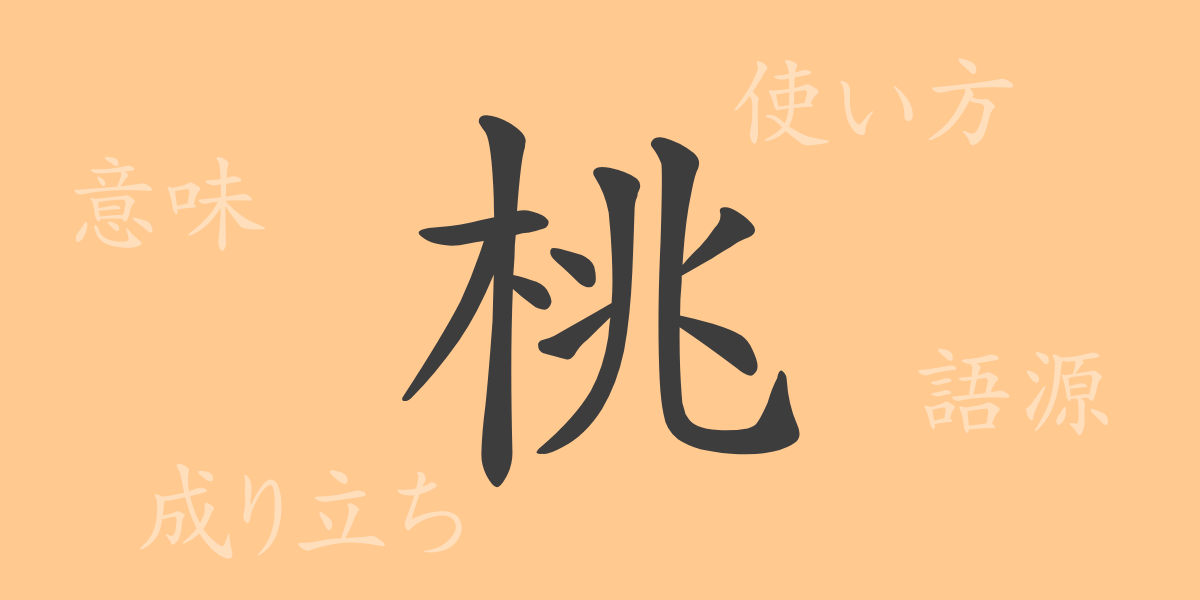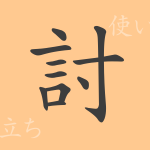The color of spring, the peach (もも) is more than just a fruit in Japan. Its vibrant color and sweet fragrance have influenced many cultures and traditions since ancient times. This article delves into the Kanji ‘桃’, exploring its history, meaning, and the rich expressions it brings to the Japanese language.
Origins of ‘桃 (もも)’
The origin of the Kanji ‘桃’ can be traced back to ancient East Asia, where the name was originally used for the fruit. According to classical Chinese texts, peaches symbolized immortality and featured in myths and legends. In Japan, peaches are mentioned in the Kojiki and Nihon Shoki, playing significant roles in mythology.
Meaning and Usage of ‘桃 (もも)’
While ‘桃’ typically refers to the fruit itself, it is also used symbolically to represent beauty and youth. Expressions like ‘桃源郷 (とうげんきょう)’, which denotes an idyllic paradise, show how the meaning of ‘桃’ extends into various contexts.
Reading, Stroke Count, and Radical of ‘桃 (もも)’
‘桃’ is a commonly used Kanji in Japan.
- Readings: On’yomi ‘トウ’, Kun’yomi ‘もも’
- Stroke Count: A total of 10 strokes.
- Radical: The radical is ‘木 (きへん)’, associated with wood or trees.
Phrases, Idioms, and Proverbs Using ‘桃 (もも)’
‘桃’ appears in numerous idioms and proverbs, each reflecting aspects of Japanese culture.
- 桃李不言 (とうりふげん): Meaning that peaches and plums do not speak, but their beauty attracts others—implying that truly virtuous people do not need to boast about their virtues to be recognized.
- 桃夭桃夭 (とうようとうよう): Refers to being youthful and beautiful, or dying young.
- 一寸の虫にも五分の魂 (いっすんのむしにもごぶのたましい): Even a small insect has a spirit—teaching that one should not underestimate others based on their appearance. Sometimes, ‘虫’ in this proverb is playfully substituted with ‘桃’.
Conclusion on ‘桃 (もも)’
The Kanji ‘桃’ not only represents the peach’s beauty and sweetness but also plays a significant role in Japanese language as a symbol of life’s lessons and appreciation of beauty. The proverbs and idioms associated with ‘桃’ continue to resonate in our hearts, reflecting the rich history and culture embodied in this single character. Please enjoy the deep historical and cultural significance of ‘桃’ in your daily life.

























